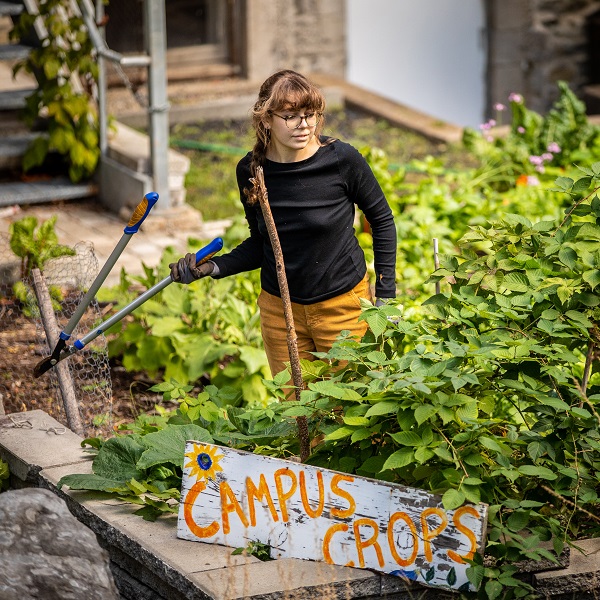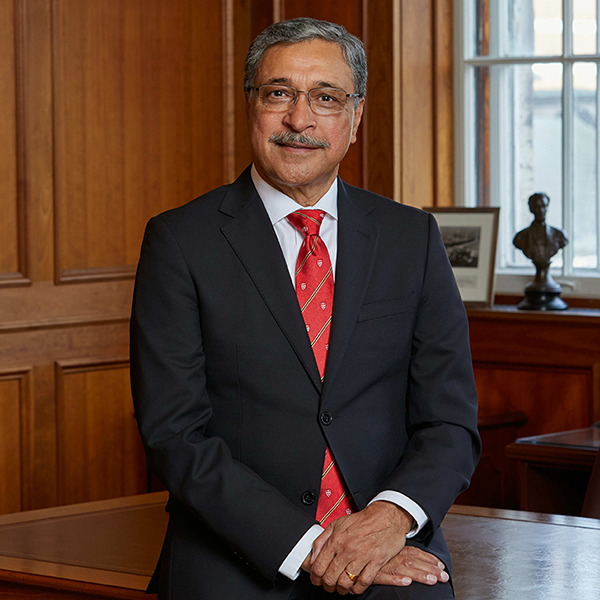If it’s Tuesday, as the old movie title goes, this must be Belgium – or Mississauga, Singapore or Westchester County for busy McGill recruiters.
When classes start every fall, McGill’s recruitment team is already focused on the next school year.
Recruiters criss-cross Quebec and visit schools in the Maritimes, Ontario and the West. With 30 per cent of McGill’s enrolment from abroad, they also travel the globe, with stops in Boston, San Francisco, Mumbai, Abu Dhabi, Paris and many other cities.
Poring over statistics is a pre-trip routine.
“Current students who are at McGill, where are they coming from?” explains Lindsay Wilmot, a senior manager in recruitment.
“It’s always good if there’s a school that’s been sending us many applicants and those applicants have a strong tendency to accept the offer and come. That can be a really great feeder school.”
McGill alumni often ask recruiters ‘why aren’t you coming here?’
Many factors go into planning where and why they go somewhere, says Wilmot, of the small recruitment team that operates on a limited budget. When alumni alert them to interest in McGill at a particular school, that’s valuable information, she says, and one of many factors for recruiters to consider.
The recruiters go where they’ve experienced past success, Wilmot says, but they also pursue avenues that are more exploratory.
“There’s always a balance that has to be struck between maintaining relationships, maintaining applicant pools and building new relationships and exploring new applicant pools.”
They visit schools, meet with guidance counsellors, students and parents. They hold information sessions and participate in college fairs. They also take part in small group travel with other Canadian universities in areas where the notion of studying in Canada isn’t deeply embedded.
Most of the time during recruitment they talk about admission requirements.
“If a student knows McGill, they know it’s going to be competitive academically to get in,” Wilmot says.
Recruiters know the lowest grades accepted for admission at McGill in the current school year. If a student falls short of admission requirements, Wilmot will discourage him or her from applying or ask if they’re interested in other programs at McGill where their chances of admission might be greater.
“Part of my job is not to have the student waste $100 on an application that’s going to be refused.”
She hears a lot of positive talk about Canada while recruiting abroad. “I find that there is just a growing sense that Canada is more and more on the map right now.”
Montreal is also a great selling point. “Everything seems to be coming together at the same time, which is wonderful,” she says. “The Canadian brand sort of shining. And then Montreal [ranked] number one student city in the world.”
McGill recruiters hit the road again, starting in February and stretching into the spring.
“We’re just hopping from city to city, meeting with newly admitted students and their families,” Wilmot says.
“That’s a critical period because they have a whole new range of questions”, she says, and are comparing institutions that have sent them offers of admission.
Internationally, the U.S. is where they spend the most time for these “yield” events, visiting many cities along the east and west coast.
Recruiters also typically return to places like Istanbul, London, Geneva, Amman, Dubai, Shanghai, Hong Kong, Beijing, “some of our really big feeder cities overseas,” Wilmot says.
Recruiters harness the power of McGill alumni during this stage of recruitment, Wilmot says. At evening information sessions, for example, a recruiter will talk to the crowd, followed by a question and answer period. When people break out into small groups, Wilmot says alumni typically “get swarmed by students with questions about McGill.”
For more information about McGill student recruitment activities, visit
https://www.mcgill.ca/undergraduate-admissions/visits/mcgill-comes-you


